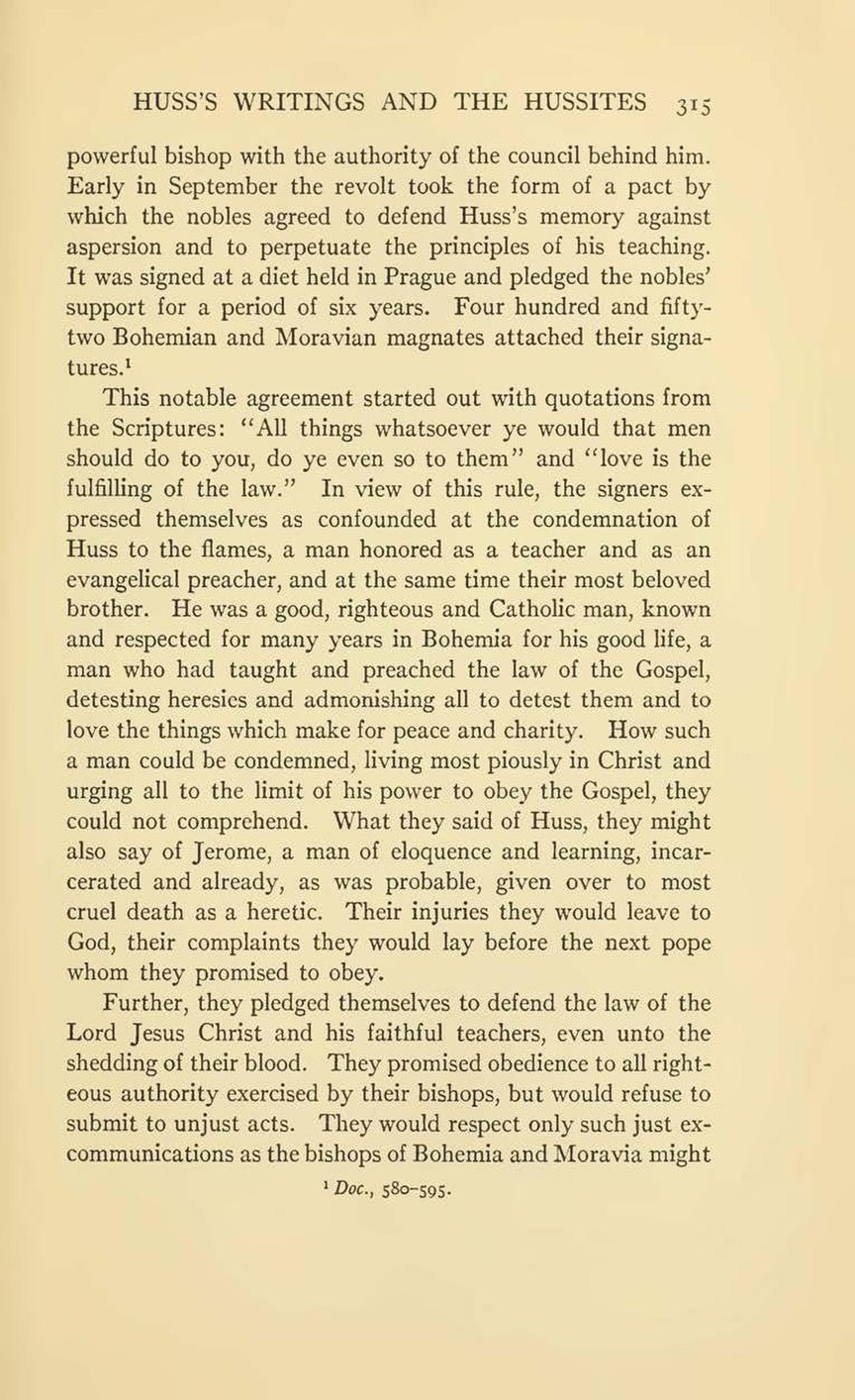powerful bishop with the authority of the council behind him. Early in September the revolt took the form of a pact by which the nobles agreed to defend Huss’s memory against aspersion and to perpetuate the principles of his teaching. It was signed at a diet held in Prague and pledged the nobles’ support for a period of six years. Four hundred and fifty-two Bohemian and Moravian magnates attached their signatures.[1]
This notable agreement started out with quotations from the Scriptures: “All things whatsoever ye would that men should do to you, do ye even so to them” and “love is the fulfilling of the law.” In view of this rule, the signers expressed themselves as confounded at the condemnation of Huss to the flames, a man honored as a teacher and as an evangelical preacher, and at the same time their most beloved brother. He was a good, righteous and Catholic man, known and respected for many years in Bohemia for his good life, a man who had taught and preached the law of the Gospel, detesting heresies and admonishing all to detest them and to love the things which make for peace and charity. How such a man could be condemned, living most piously in Christ and urging all to the limit of his power to obey the Gospel, they could not comprehend. What they said of Huss, they might also say of Jerome, a man of eloquence and learning, incarcerated and already, as was probable, given over to most cruel death as a heretic. Their injuries they would leave to God, their complaints they would lay before the next pope whom they promised to obey.
Further, they pledged themselves to defend the law of the Lord Jesus Christ and his faithful teachers, even unto the shedding of their blood. They promised obedience to all righteous authority exercised by their bishops, but would refuse to submit to unjust acts. They would respect only such just excommunications as the bishops of Bohemia and Moravia might
- ↑ Doc., 580–595.
